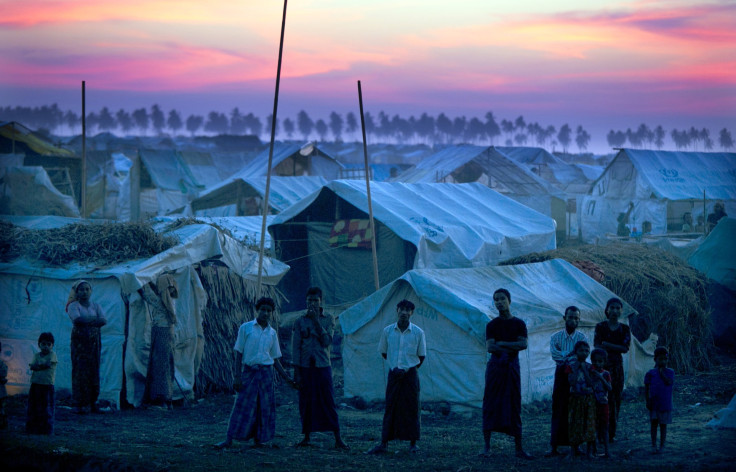Myanmar Military Killings: Amid Rohingya Refugee Crisis, Army Opens Fire On Bangladeshi Fishermen

The Myanmar navy opened fire on fishing boats this week, injuring at least four Bangladeshi fishermen who were in their country’s waters, according to Bangladeshi border guards. The allegation Wednesday came amid heightened tensions over a refugee crisis that has seen a Muslim minority fleeing from Myanmar fearing their lives.
“The fishermen, fishing within Bangladesh's body of water on the Bay of Bengal Cherrha Dwip, were shot by a Myanmar navy vessel,” Mohammad Saiful Absar, the contingent commander of the Bangladeshi border guard in St. Martin, said, according to Reuters.
The shooting, which Absar said took place Tuesday, highlights heightened tensions between the two countries as Myanmar’s government faces international criticism that it hasn’t done enough to help the Rohingyas, a Muslim minority community in the southern Myanmar state Rakhine.
There have been at least 130 people killed in Rakhine in recent months following an army crackdown triggered by Rohingya attacks on police posts near the Bangladesh border that killed nine officers. The anti-insurgency efforts undertaken recently by the Myanmar army led to silence between Myanmar and Bangaldesh officials, who have been upset with the flood of Rohingyas fleeing across the border into their country.
Rohingyas have fled Myanmar since at least the 1970s but the violence that followed the October killings has led more people to try and flee the country. The 34,000 or so refugees who have fled in recent months have seen Bangladesh deploy extra border agents to push back against the influx.
The Rohingyas are an ethnic Muslim minority group in the country who practice a variation of Sunni Islam. There are an estimated one million of them living in Myanmar and they make up about a third of the population of the state where they live. They have not been granted official citizenship with the Myanmar government, a situation that has created a large population without legal documentation who are effectively stateless, according to the Council on Foreign Relations.
Because of their lack of legal status, many Rohingyas have fled the country over restrictions on marriage, employment, education, religious choice and family planning. Rakhine state is the least developed of all states in Myanmar and suffers a poverty rate that inflicts more than 78 percent of households.
© Copyright IBTimes 2025. All rights reserved.






















